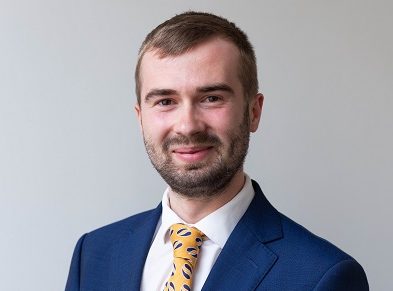Nottingham immigration law firm issues warning to football clubs

A Nottingham-based immigration law firm has warned top football clubs that they will have to navigate the sometimes labyrinthine immigration rules surrounding overseas players from EEA countries as the transfer window enters its frenetic last week.
The transfer window opened on 2 January, with this the second year that UK football clubs have had to adhere to the new immigration rules following Brexit. As George Hanvere from Nottingham-based Paragon Law explains, following the UK’s departure from the EU, the free movement of EEA nationals between the UK and the EU has ended.
While football clubs may have traditionally looked forward to the January transfer window, but this year’s big money bonanza may have been somewhat frustrating, according to one immigration law specialist.
Hanvere said: “This year, as last, the transfer of EEA nationals to the UK was that bit harder. As 31 December 2020, football clubs are required to apply for a visa for EEA nationals to enable them to come to the UK and play football.”
What this means in practice, says Henvere, is that the club purchasing the player (or receiving them on loan) is required to hold a sports specific sponsor license.
The days of quick-fire, last minute deals could be over, adds Hanvere, with a huge amount of hoops a club has to jump through before making their big signing.
He adds: “Before a player is able to apply for a visa, the club must obtain an endorsement from The FA. The club must assign a certificate of sponsorship to the player using the International Sportsperson visa. This visa allows the player to be sponsored for up to three years, with the possibility for extension and eligibility for settlement after five years in the UK).
It’s even more frustrating for football clubs that lie outside the top four divisions of men’s football or the top two divisions of women’s football, says Hanvere, adding: “The clubs cannot obtain a sports sponsor license and will no longer be able to recruit EEA nationals unless the player obtains a visa outside of the sponsored worker system and that visa permits them to play football.”
The FA endorsement can be attained in more than one way, says Hanvere.
He adds: Players who have made a certain percentage of international appearances for the best-ranking national teams over a certain period of time will receive an automatic endorsement.
“However, there is a secondary points-based scheme whereby a play is not awarded an ‘automatic’ endorsement. Under this scheme, the endorsement will be dependent on the following criteria: the quality of the league of the selling club; minutes played by the player; and the domestic league and continental cup progression of the club they played for at the end of last season.
“Youth players (under the age of 21) have the opportunity to be assessed on youth-team specific criteria if they fail to meet their respective points pass marks.”
Paragon Law points to the recent example of Nottingham Forest securing the signing of Richie Laryea. The player is a Canadian national and is entitled to an automatic endorsement and he has played in more than 70% of Canada’s international fixtures that he has been available for selection for in the 48 months prior to the date of the transfer due to Canada being the number 40 ranked team in the world.
Hanvere adds: “Over the last 48 months Richie Laryea played in 100% of Canada’s fixtures that he has been available for and therefore he has played in more than 70% of Canada’s international fixtures that he has been available for selection for in the 48 months prior to the date of transfer.
“The situation is something football clubs will have to become used to – and while it’s understandable that mistakes will be made by those in charge of the transfer process, the rules look set to stay.”









